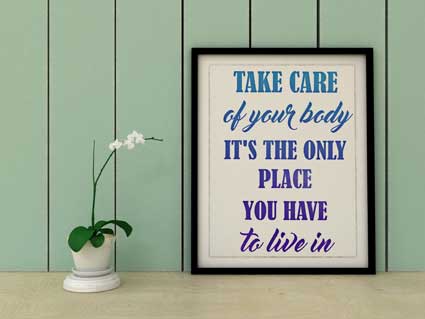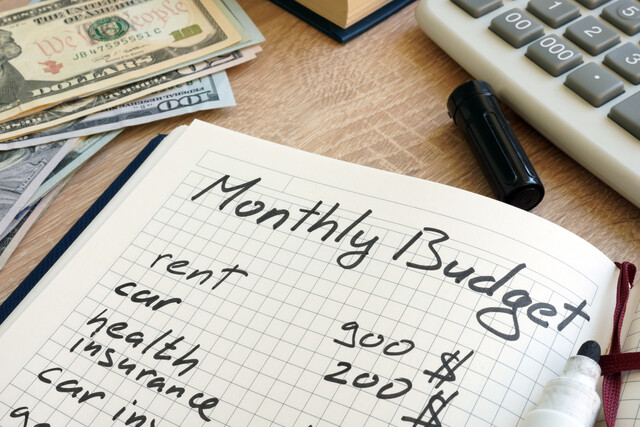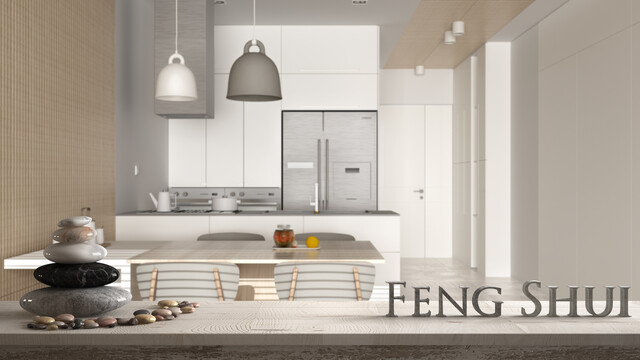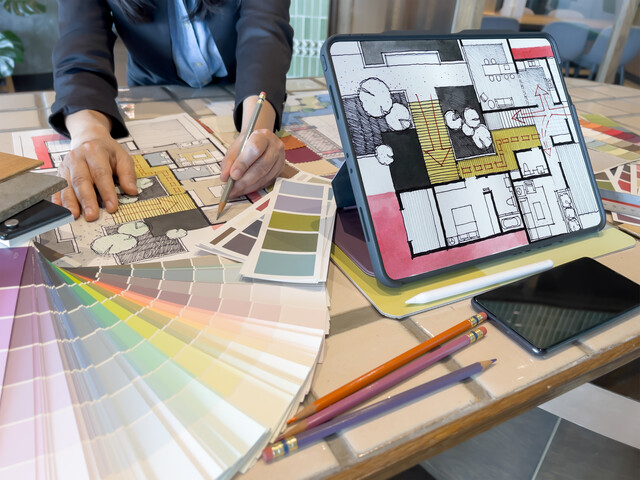HOME: A dwelling place, abode; the fixed residence of a family.
Surprisingly, the most important decision to make is whether you definitely want to sell your house. Although this might sound like a given, it is not. Some people try to sell their homes before they are ready. Selling a home is a major process and you need to make sure that you are ready to sell and that this is the right time for you. It is not just the physical work of packing, cleaning, and moving out before the buyers show up, but the emotional toll of separating yourself from the place you love or raised a family can be heart wrenching.
Nevertheless, if you feel you are ready to separate yourself and become a homeseller rather than the homeowner, then congratulations on making the sound decision to seek a little more help in trying to sell your house or apartment or condominium.
You should be very clear about why you are selling your home. Is it a job transfer? Are you having another child and so is room an issue? Are you downsizing now that the children are gone? Do you want a better school district or more room for entertaining? Do you need to sell the home because the market is so bad and you are losing equity? Then you have to decide how quickly you would like to sell your home, immediately, three months from now, a year? All of these things will dictate whether you are going to be relaxed about selling your house or anxious. All those requirements will also factor into preparing your house for sale.
This article will be a refresher article for some of you and for others (particularly if you have not sold a home for 20 years or more) it will provide a wealth of new information. If you have previous experience selling a home, then you can rely in part on the experience and articles you have learned in the past. However, remember that every home selling experience is different because of changes in the market, the particular house you are selling, the area where you are selling, how you choose to proceed with the process, and the people who will be involved in the process. This article only focuses on the preparation for the sale.
For most people, there will never be a more costly purchase than buying a home. So, when you are putting your house up for sale, it is important to make sure your place is in tip-top shape from the first showings to the final walk through. Some seller's act like they are disposing of old furniture at a flea market by failing to make sure that their home is clean and well kept throughout the process. Even in todays slow selling market, sloppy sellers will simply lose money because the few potential buyers will walk away.
If you are taking this article, you are probably thinking of putting up your house for sale soon or have already decided on a date that you must sell it. With this in mind, your two main goals are 1. To sell it for the greatest profit and 2. To sell it quickly! By following the suggestions in this article I believe that you can achieve these goals, and that it will not cost you a huge amount of money.
This article will concentrate on what buyers are most concerned about, curb appeal, entranceway, kitchen, and bathrooms. The basic improvements I will be suggesting should be less than $500.00 and that money is mainly for paint, small repairs, and landscaping enhancements. You might spend more or less depending on the state of your house. Of article, if you discover your house needs major repairs or if you decide to do some major improvements like new flooring or carpeting, then your timetable and expenses will change accordingly.
Sellers do have control in the realty game and this article will show you what you can control. You must know what you are doing to maintain control and I hope that this article will help you avoid simple mistakes so you can sell your house for the very best possible price. This article is just about preparing your house so that you can get the most money out of it and that part of it you can control. I believe if you follow the suggestions in this article, you will succeed (and not just more money from the sale). You will have peace-of-mind knowing that you did everything you could to present your house in the best possible light, and you will have maximized your chances of getting the highest asking price for your property.
I will give you a checklist for selling in 30 days, but even if you have a much different time period, say 60 or 90 days, the checklist will help you prepare.
I have bought and sold seven houses in my lifetime (my husband was a partner in all the work but for the purposes of this class I will use the singular) and it really was not until the last 4 years that I finally got smart. We have lived in four different areas of the United States, Washington State, Colorado, New York (Manhattan and Long Island), and Florida. Some of the early houses we barely broke even on and some we made money on (mainly because of living in a rapidly appreciating market). When our children had left home, I had the time to think about what would make a buyer want to buy my house. I learned by looking at the houses I wanted to buy (yes, I love to tour Open Houses even if I am not looking to buy, mainly for decorating ideas). I also learned what affected me the most about the houses. I have helped friends and relatives stage their homes for Open Houses.
We just sold our last house in the summer of 2004, we lived in it for four years, and we more than doubled what we originally paid for the house. It was not just because of a great housing market. We bought it for lower than its value, because of the outdated decor mainly, and we did not put on any additions, but we did fix it up to develop all of its charm. Wood flooring, many paint treatments, crown moulding in all rooms, new doors, light fixtures, and landscaping additions everywhere in the yard. I worked hard in preparing the house using many of the ideas in this class, and we sold it to the very first couple that looked at it!
Many home sellers squander time and money fixing up things better left alone. Gutting your home to sell it is not practical, either emotionally or financially. The stories of buyers ripping out fixtures that the seller just added months before are legendary. (Please click on the Best Investment document at the end of this Introduction for upgrade information).
This article is not about putting a $10,000 redo into the kitchen or bathroom. It is more about buying a few buckets of paint, having the rugs cleaned, or taking out the rugs if you have wood floors, cleaning, and staging your house. Moreover, most of these suggestions are labor intensive but not pocketbook intensive.
Think minor remodels and not major renovations before you sell.
In the following articles, I will give you checklists for the interior and exterior of your property you can print out, as well as creative tips to add charm for your Open House. Many of these ideas are common sense and you know them already but if you have a month to get ready, it helps to have them on a priority list so you can budget your time.
At some point, you will want to do walk-throughs with at least three realtors. Even if you plan to sell your house yourself, this is a free service so do not be afraid to use it.
Tip. Do not tell any of the realtors that you are comparing price estimations of other realtors; just get their individual opinion of what they think your house will sell for based on their judgement of the neighborhood sales' history. You will soon have an idea of who really knows their stuff. In addition, see if you can get the realtor to tell you what they think you could do (if anything) to get more money for your property.
These appraisals will not only help you decide on a price, you will find out what other homes in your area have sold for, what buyers have been particularly looking for, and you might get some practical information on increasing your home's value. Besides curb appeal, real estate agents have a term for a house that is virtually perfect inside and out and therefore easier to sell, "Cream puff." Would you like the real estate grapevine to view your house as a cream puff?
As I said at the beginning, this article will not cover the financial considerations in selling, or whether to sell it yourself or hire a real estate professional but I have included links throughout the articles on where to find this information on the internet.
A House is not a Home
Once you decide to sell, you must have the mindset that your house is no longer your home. You will always have your memories but now your home is the place that you are going to "move to" and the place you are going to sell is a "house property." You need to begin looking at your property withBuyer's eyes. When it is your own home, you honestly do not see the chipped and stained tile in a bathroom, the doorbell that often does not work, that gouge in the wall from someone's hockey stick, the dishes on the counters, the untidy and smelly litter boxes, the stacks of magazines and newspapers, and so on (get my point?). Buyers are not going to see your child's adorable poster and scruffy stuffed animal collection as something adding value to the property and the beautiful view out of the kitchen window may be hidden by windowsill clutter. They will be focusing on the walls with nail holes, the cracked window, the stained rug, the overflowing closet ('Hey, must not be enough room if the closets are stuffed').
What makes one house go on the market, have a number of showings in the first week and have a contract in place shortly thereafter, while an apparently similar house sits on the market for months? Of course, luck may have something to do with it, but there is a good chance that the quick selling house (and its owners) were prepared to sell while the other house and owner was not.
If you have time, go to some Open Houses, see what you like and do not like about the house presentation. What was your impression when driving by the house? What was your first impression walking up the driveway and ringing the doorbell? What was your first thought when you entered the entrance hallway or front room? Now do the same for your home. It is time to walk outside your house, cross the street, and look at your house with a stranger's eyes. Look at what a potential buyer will see when they drive by. Most buyers will not have any imagination and if they see a bunch of small problems, they will not see the potential. You have already begun to lose the sale if the outside yard and house exterior is not perfect.
Go out and walk up your driveway, ring your doorbell, and enter your house. What do you think? What can you do to make the first impression more positive?
There are four main areas that most buyers will always notice,the curb appeal, the entrance to the house, the kitchen, and the bathrooms.
Check your local newspapers for Open Houses and Model Home tours. Model Homes are great because you can see what it feels like to enter a space with no wear and tear. Take advantage of weekend and weeknight Open Houses that are similar in price and similar neighborhoods to yours. Those staged rooms look wonderful; they do not clutter them with too much furniture so everything looks spacious. No fingerprints on kitchen cabinets, no clutter on counters, just a beautifully positioned bowl of flowers or fruit (usually fake). Each room will look perfectly maintained and give the illusion that buyers can move right in without even having to vacuum. The point of this information is that move right in feeling is what you are going to strive to achieve when you put your For Sale sign out.
Purchase a small, spiral bound notebook, which will become the nerve center of your home sale.
Tip. Go through each room of your house with a notepad and write down what you would like fixed if you yourself were the potential buyer. Just in case you have any doubt, first impressions really count! Some would be buyers never recover from their first impression of a house (negative or positive) and it will influence everything that they see and feel!
Some sellers like to create two lists, a Must-Do list, and aWish list. A "must-do" list would have any projects that you started and have not completed, any projects that will improve your home aesthetically, and any projects that if left undone could derail the sale of your house. The "wish" list would include all those things you intended to do but never got around to them.
Once your list is finished and prioritized, start doing or scheduling the repairs. Be prepared to go back to your list and reprioritize based on the time constraints and information you learned at Open Houses about what is selling.
After you have made basic repairs, the task of selling your home boils down to making the house as clean, clutter free, and inviting as possible. Every house has "negatives" and you certainly are not going to correct them all in a month. However, if you highlight the "positives," the "negatives" may fade from the buyer's mind. This means un-cluttering and real cleaning. You need your potential buyers to have a positive feeling in every room of your house and yard. You want them to feel that this could be their home.
Tip. Have a friend or relative go through the house with you. They might catch some things that you have not thought of. (Be sure and tell them that they can be brutally honest and you will still be friends.)
Experts in the real estate business describe three stages buyers go through when purchasing a house.
1. Stage One begins even before would be buyers actually look at houses. It is their homework on location, price range (today many go through mortgage pre-approval) style and size.
2. Stage Two begins when would be buyers arrive and evaluate your property and how it might work for them. Will they feel an emotional sense of "home" in your house? This "feeling" is entirely up to how you have prepared your residence. Even if it does not meet every item on their priority list, buyers will re-prioritize because of their initial feelings. Nine out of ten homes are sold because of that emotional feeling. If the buyer feels this connection then they move to the next stage.
3. Stage Three begins the actual negotiations. Therefore, your goal is to generate such a feeling of home, that you will get a quick sale and more money.























